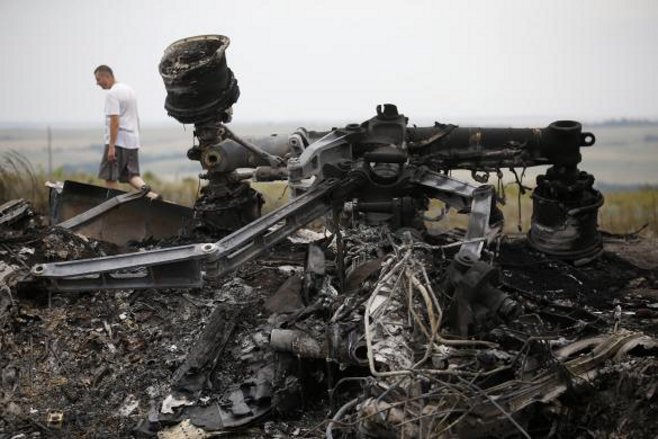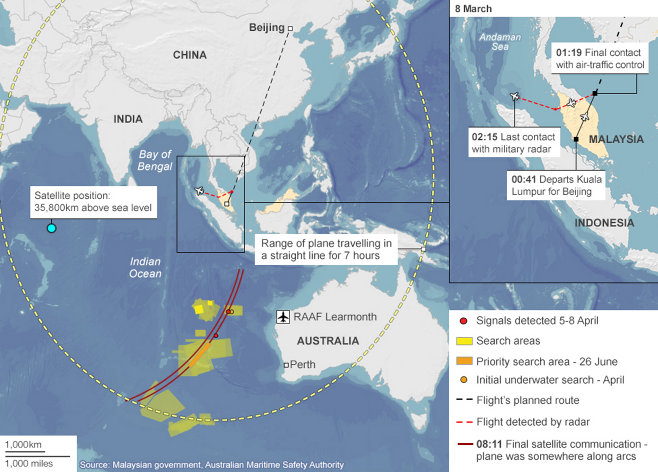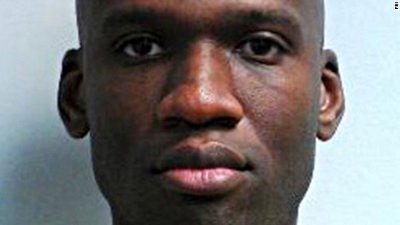I ran into a news item last night. The focus was on U.S. Defense Secretary Robert Gates, his Chinese counterpart General Liang Guanglie, and what Gates said about China-United States relations. The two men were at an Asia-Pacific annual security conference ("talkfest" is how the article put it): called the Shangri-La Dialogue, of all things.
The latest hack attack coming from servers in China came up, briefly.
Hackers and Imperialist Capitalist Aggressor Warmonger Running Dogs
Times change. I haven't heard diplomatic
boilerplate like "capitalist aggressor" for quite a while. Being away from college probably helps, but I think many folks have realized that it's not the 19th century any more, and class struggle just isn't what it used to be. And that's another topic.
Some things haven't changed so much, though.
First, about the latest hack attack:
"There is a lot of talk--and diplomatic tension--this week related to reports that attacks originating from China have breached Google Gmail accounts, including those of senior US government officials. The focus is on e-mail, and whether or not e-mail accounts were hacked, but a breached Gmail account is a much bigger prize than just the e-mail account it is attached to.
"Google claims that the spear phishing attacks that targeted Gmail accounts of White House staff, and successfully exposed accounts of senior US government officials, high-ranking military personnel, and political activists, originated from China. China denies any state-sponsored involvement in the attacks, and the FBI is investigating...."
(PCWorld Business Center)1
I think it's possible that Google
and China's leaders are right. I think it's very likely that Google traced the hack attack to servers in China: although I'll admit that Google could, in principle, be faking the attack's source. I don't think that's likely, but is is possible.
As for China's response to news that their servers hosted a hack attack? Again?
According to China's military, it is the work of Yankee imperialists. That's not quite the way they put it, but that's the basic idea:
"...A new irritant was introduced this week, with allegations that computer hackers in China had compromised the personal Gmail accounts of several hundred people, including U.S. government officials, military personnel and political activists.
"The Chinese military tried to direct the spotlight off those allegations Friday, with accusations that the U.S. is launching a global 'Internet war' to bring down Arab and other governments.
"The FBI said it was investigating Google's allegations, but no official government email accounts have been compromised. Google said all the hacking victims have been notified and their accounts have been secured.....
(Associated Press, via Foxnews.com2) [emphasis mine]
Again, China's line seems to be that "the U.S. is launching a global 'Internet war' to bring down Arab and other governments."
That's probably good enough for folks who believe that the CIA blew up New York City's World Trade Center. After all these decades, though, it sounds like the same tired old 'American aggressor warmonger' stuff that cluttered the news in my youth.
A Country's Servers aren't a Country's Government
Since China is one of the world's more tightly-managed countries, in my opinion, I find it a little hard to believe that hackers have just happened to use Chinese servers for hack attacks - for years - and that the country's leadership doesn't know it's happening and can't stop it anyway.
Still, it's possible.
Particularly since I can easily imagine that it's in China's interests to get access to networks in other countries, for either espionage or sabotage, and blame Yankee imperialism.
China's response may simply be knee-jerk xenophobia: the sort of thing that had right-wing loonies blaming whatever they didn't like on the commies, back in 'the good old days.' I
remember the real "
Happy Days," by the way - and don't, ever, want to go back.
Or, the folks running China may not be the ones who planned and executed all those hack attacks. China's leaders may be aware that the attacks come from servers in their country - and not be able to stop whoever's behind the hacking. If that's the case, they may simply be embarrassed: and desperately want the problem to belong to someone else.
I think it's a good idea to remember that a national government doesn't necessarily control everything that happens within its borders: no matter how much the leaders want to.
Real Threat, Proportional Response
It's entirely possible that no one person or organization is behind attacks on the World Bank, Gmail, Sony, and all the rest. I think it's quite possible that there is no one motive behind the hacking.
My understanding is that there's a hot - if unethical and illegal - market for the sort of data that has quite possibly been stolen. That would make the hacks a new version of burglary. And, most likely, a private-sector effort.
Governments have their own motives.
What's happened in Tunisia, Egypt, Bahrain, Syria, Libya, and elsewhere shows what can happen when old-school leaders lose control of their subjects. My guess is that Iran's rulers are developing a 'just us' intranet to keep the 'Arab spring' from spreading east. The Ayatollahs have nice-sounding motives: they want to 'protect' Iranians from foreign influences.
In my opinion, Iran's leadership isn't the only outfit that's scared of the Information Age. And for good reason. I've gone over that before:
I think it's likely that some folks have idealistic reasons for hacking into corporate and government networks. Sometimes I even sympathize - a little - with the ideas they support. Like freedom of information. Which is emphatically
not the same as thinking that what they're actually doing is right.
In a way, it's a sort of 'with friends like these, who needs enemies?' situation. A case in point:
"A hacker group has claimed responsibility for defacing the PBS.org website, the Fox.com site, and the Sony network, posting images of defaced websites and stolen databases and emails to its website....
"...Pike linked the hacker group Lulz to Anonymous, the 'hacktivist' collective that -- in the name of the freedom of information -- has hacked numerous websites, wrestled with security firms and made public a decrypted version of the cyberworm that crippled Iran's nuclear power program...."
(Jeremy A. Kaplan, FoxNews.com (June 2, 2011))
According to the article, Pike's considering turning himself in, before law enforcement shows up with a warrant. That's a good idea, in my opinion. Blaming Yankee imperialism may still work as an excuse in diplomacy: but American law enforcement is, in my experience, more interested in facts than finger-pointing.
As I said before, I think it's possible that a server in China could have been used for hack attacks, without the Chinese government being involved.
Determining how likely that is - and whether that's what's actually been happening - is a job I'm profoundly grateful belongs to someone else.
If it turns out that the Beijing bosses are responsible for the hack attacks, I suspect and hope that America's leaders will try to sort the mess out diplomatically. Not because I think the folks who are still occupying Tibet are a bunch of really nice guys who are just misunderstood. It's a matter of proportional response, and how many folks who
weren't responsible could get hurt or killed in a military operation.
If the North American power grid goes down this winter? That's something else. (
June 1, 2011)
China, Assumptions, and Living in the Information Age
I've been criticized for not having the proper attitude toward China: and not being politely silent.
3 It's a familiar reaction. Commie-hunters acted that way in the McCarthy era (
January 9, 2010); professors did the same, a few decades later; and I'm don't think trying to impose ideological purity is a good idea - no matter whose ideas are being shoved down my throat.
I also think it's a bad idea to assume that 'foreigners,' 'commies,' 'the military-industrial complex,' '
Big cheese,' or any other standard-issue bad guys are 'really behind' any particular issue. (
January 14, 2009)
Finally, I think that these are trying times for old-school autocrats: and anybody who had a privileged position before information technology made it possible for folks to share ideas - without permission from their 'betters.'
I like the comparatively open marketplace of ideas we have today: but then, I don't mind people having access to dangerous technology. Like LP gas, guns, or computers. (
June 27, 2008)
Related posts:
- Hack Attacks
- "L-3 Communications, Grumman: Hack Attack"
(June 1, 2011)
- "Pentagon's New(ish) Policy About Hack Attacks"
(May 31, 2011)
- "Lockheed Martin, Oak Ridge, Spear Phishing, and Common Sense"
(May 29, 2011)
- "China, Paper on How to Bring Down USA Power Grid: All a Big Misunderstanding?"
(March 20, 2010)
- "World Bank Group Network Hacked; Chinese IPs Used: Just What We Need"
(October 10, 2008)
- Passwords, security, and common sense
- "Cloud Computing, Dropbox, and the Postcard Principle"
Apathetic Lemming of the North (May 13, 2011)
- "Lemming Tracks: Bad News From Sony; and Getting a Grip"
Apathetic Lemming of the North (May 3, 2011)
- "Lemming Tracks: Epsilon Breach, Spam, and Getting a Grip"
Apathetic Lemming of the North (April 6, 2011)
- "Strong Passwords: It Can be Done"
Apathetic Lemming of the North (January 1, 2011)
- "International Cyber Crime Ring Busted: 'By Jove, I Think They've GOT It!' "
Apathetic Lemming of the North (October 3, 2010)
- China, Yankee imperialism, and getting a grip:
News and views:
1 Excerpt from news and views:
"Putting a positive spin on a sometimes stormy relationship, U.S. Defense Secretary Robert Gates said Friday that military ties with China are 'on a more positive trajectory' but need further strengthening....
"...The main elements of friction remain, however. China still claims control of waters the U.S. considers international. Chinese ambition for influence in Southeast Asia and elsewhere still makes smaller nations uneasy, while Beijing dislikes the heavy U.S. naval presence in Asian waters and builds up its military with weaponry only logically intended for use against the U.S.
"A new irritant was introduced this week, with allegations that computer hackers in China had compromised the personal Gmail accounts of several hundred people, including U.S. government officials, military personnel and political activists.
"The Chinese military tried to direct the spotlight off those allegations Friday, with accusations that the U.S. is launching a global 'Internet war' to bring down Arab and other governments.
"The FBI said it was investigating Google's allegations, but no official government email accounts have been compromised. Google said all the hacking victims have been notified and their accounts have been secured.....
"...Gates and Liang met on the sidelines of the Shangri-La Dialogue, an annual security talkfest attended by defense officials from across the Asia-Pacific region. On Saturday Gates was delivering an address to the conference before continuing an around-the-world journey that is his final trip before retiring June 30...."
(Associated Press via FoxNews.com)
1Excerpts from news and views:
"There is a lot of talk--and diplomatic tension--this week related to reports that attacks originating from China have breached Google Gmail accounts, including those of senior US government officials. The focus is on e-mail, and whether or not e-mail accounts were hacked, but a breached Gmail account is a much bigger prize than just the e-mail account it is attached to.
"Google claims that the spear phishing attacks that targeted Gmail accounts of White House staff, and successfully exposed accounts of senior US government officials, high-ranking military personnel, and political activists, originated from China. China denies any state-sponsored involvement in the attacks, and the FBI is investigating.
"The Gmail e-mail accounts are getting all of the attention. Catalin Cosoi, head of the BitDefender Online Threats Lab, notes in a blog post, 'Just as in the previous attack against the Gmail service, we can assume that cyber-criminals went after sensitive documents the users might have inadvertently forwarded from their business inboxes.'
"But, it would be more accurate to say that Google accounts are being targeted or compromised--not just Gmail. Depending on the extent the hacked account relies on Google, there is potentially much more at stake than just the documents that might be forwarded as a file attachments from Gmail. There is no differentiation between hacking a Gmail account, and hacking the rest of the diverse array of Google services....
"...If the victim actually uses Google Docs, the attacker will have access to all documents, spreadsheets, presentations, forms, and drawings stored online by the victim--not just the ones that might have been included as a file attachment in an e-mail.
"Accessing Google Maps could yield valuable information as well. Most users enter a home address as the default location to save time when searching for driving directions....
"...It is up to Google, and China, and the FBI to get to the bottom of whether the compromised accounts are a state-sponsored act of international espionage, or just the work of run-of-the-mill spear phishing cyber-criminals. But, regardless of who is behind the attack, or what the underlying motives are, there is more than just e-mail at stake."
(PCWorld Business Center)
2 Excerpt from news and views:
"Putting a positive spin on a sometimes stormy relationship, U.S. Defense Secretary Robert Gates said Friday that military ties with China are 'on a more positive trajectory' but need further strengthening....
"...The main elements of friction remain, however. China still claims control of waters the U.S. considers international. Chinese ambition for influence in Southeast Asia and elsewhere still makes smaller nations uneasy, while Beijing dislikes the heavy U.S. naval presence in Asian waters and builds up its military with weaponry only logically intended for use against the U.S.
"A new irritant was introduced this week, with allegations that computer hackers in China had compromised the personal Gmail accounts of several hundred people, including U.S. government officials, military personnel and political activists.
"The Chinese military tried to direct the spotlight off those allegations Friday, with accusations that the U.S. is launching a global 'Internet war' to bring down Arab and other governments.
"The FBI said it was investigating Google's allegations, but no official government email accounts have been compromised. Google said all the hacking victims have been notified and their accounts have been secured.....
"...Gates and Liang met on the sidelines of the Shangri-La Dialogue, an annual security talkfest attended by defense officials from across the Asia-Pacific region. On Saturday Gates was delivering an address to the conference before continuing an around-the-world journey that is his final trip before retiring June 30...."
(Associated Press via FoxNews.com)
3 Comments from "
Tibet: Fifty Years of Chinese Liberation, and Counting" (March 10, 2009):
"Anonymous said...
"If you are outside of Tibet, just leave Tibet alone, let Tibetan live by themselves, please love your land where you live and shut up. If Dalai was right, a pig could fly.
"March 10, 2009 3:45 PM
"Brian, aka Nanoc, aka Norski said...
"Anonymous,
"If 'Tibetan live by themselves' I might. However, since Tibet was invaded about fifty years ago, and Chinese troops are now stationed to keep the Han shopkeepers safe and Tibetans in line, and quite a number of Tibetans don't like the situation: I will not 'shut up.'
"Kudos, though, at being comparatively civil about it. Particularly in comparison with what may have been another of the throng of Anonymouses out there, responding to 'Today's Main Event: Protesters vs. the Olympic Torch in San Francisco' (April 9, 2008).
"That Anonymous's comment, in full:"Anonymous said...
"Don't pretend that you know a lot about history. Tibet is still a An English TRANSLATION name as same as Xizang. Now that you don't like China, you can call Xiazang any name you want.
"Suggest you goto a library to read a little more about Tibet then comment on this "Independence", though suggesting going to library is often a mother's duty.
"April 26, 2008 7:54 PM
"March 10, 2009 6:05 PM
"Politics and the Future said...
"China is not my focus in the war on terror only in my economic studies is it a bigger focus for me.
"But I do have to say one thing, with a growing nation could China become a new superpower? could they develop weapons of mass destruction? I know I know I sound like a conspiratist but I'm not. I am only asking.
"I believe they are going to gain more power both militarily and economically.
"March 10, 2009 6:59 PM
"Anonymous said...
"Please pay more attention to your own business. Never lavish your sympathy on Dalai. If you turn blind eyes to the truth and still whitewash a serf owner as your spiritual leader, I would say nothing any more. What do you think if you know those old noble owner picked serfs' eyes and striped their skin for punishment ? They asked serf to take their shit as medicine. How do you feel about it? These only happened several decades ago under Dalai's rule in Tibet. Where is your conscience. How could you depict it as a shangrila? Please look back to the documentary which your western media took before 1990's. If you think you are god and don't need to read, I go.
"March 10, 2009 8:04 PM
"Brian, aka Nanoc, aka Norski said...
"Anonymous #2, or maybe the same Anonymous,
I know that Tibet isn't Shangri-La (Lost Horizon is a pretty good movie, though - so is Star Wars). Live [!] isn't the movies.
"I do, though, seem to have hit a nerve.
"Apparently, one is not supposed to discuss, or mention, the liberation of Tibet - except in glowing terms.
"Anybody interested in the Chinese side of this issue could do a lot worse than reading that op-ed I linked to.
"This isn't just about the Dalai Lama, by the way: the new overlords of Tibet may not be that big an improvement over the monks they displaced.
"March 10, 2009 8:11 PM
"Brian, aka Nanoc, aka Norski said...
"Politics and the Future,
"I think I followed that comment.
"China's nuclear weapons program began, as far as can be determined, in the mid-1950s. At this time, they almost certainly have hundreds, but not thousands, of nuclear bombs in their stockpile. Chinese leaders have repeatedly pledged to not use nuclear weapons first in a confrontation. ("Weapons of Mass Destruction (WMD) - Nuclear Weapons" GlobalSecurity.org)
"I'm inclined to believe Chinese leaders on this point. After the debacle we call the Cultural Revolution, Chinese leadership has shown few to no suicidal tendencies.
"(North Korea with nukes is a whole different ball of wax.)
"Not that I have unwavering confidence in the good will of the Chinese government.
"For those looking for something to be concerned about, there's China's secret submarine base (no kidding): "Forget the Olympics For Now: China's Secret Submarine Base is Serious" (May 2, 2008)
"March 12, 2009 12:48 PM"
(Comments from "Tibet: Fifty Years of Chinese Liberation, and Counting" (March 10, 2009))







